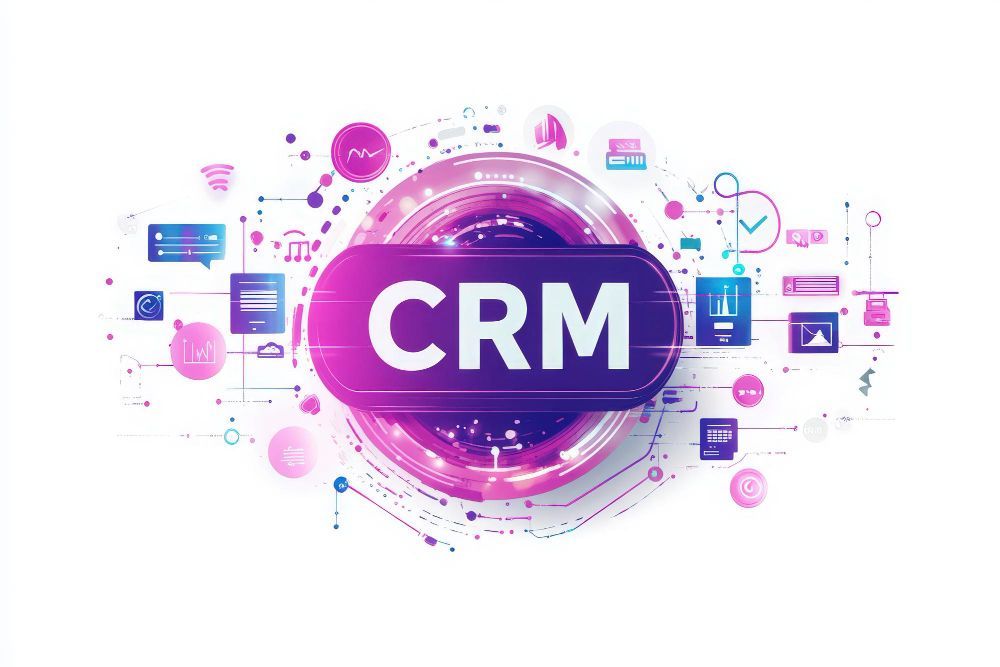Technology Glossary
We hear you, and we've got answers!
Below are some of the questions that pop up most often when we're chatting with our amazing clients, both new and those we've known for ages. Take a peek—you might just find what you're looking for!
CRM
Think of a CRM as your company's ultimate "Customer Relationship Magic Book." It's a special system where you keep track of everything about your customers – their past trips, their birthdays, what they like (and don't like!), their questions, and every time you've talked to them.
Why its fun & helpful
This magic book helps you remember important details about every single traveller, so you can offer them super personal service, remember their favourite coffee for their next flight, and make them feel truly special. It's how you build rock-solid relationships and keep them coming back for more adventures!

PMS
A PMS (Property Management System) is like the super-smart brain behind a hotel. It helps hotels manage everything from who's checking in and out, to which rooms are clean, to what guests ordered for room service, and even their billing.
Why its fun & helpful
For you, it means your booking system can talk directly to the hotel's brainy buddy! This ensures you always have the most accurate, real-time info on room availability and prices, making bookings smooth as silk and avoiding any awkward surprises for your travellers.

Chatbots
Chatbots are those clever little computer programs that can chat with your customers online, just like a real person, but super-fast and available 24/7!
Why its fun & helpful
They can answer common questions instantly (like "What's the baggage allowance?"), help with simple booking queries, and even give quick tips. They're like your tireless, friendly robo-assistants, taking care of the quick stuff so your human team can focus on the big, tricky questions and planning bespoke trips.

Geolocation
Geolocation is like having a digital treasure map that knows exactly where people (or their phones) are in the real world. It uses signals from satellites or Wi-Fi to pinpoint a location.
Why its fun & helpful
This tech can make your travel app pop up with super-relevant tips when travellers arrive somewhere new – "Hey, you're near the best gelato shop!" or "The bus stop for the museum is just around the corner!" It turns every trip into a more interactive, exciting exploration.

Virtual Reality & Augmented Reality
Virtual Reality (VR) is like stepping into a completely different world using a special headset – think walking through a virtual hotel room. Augmented Reality (AR) is when digital stuff is layered on top of the real world, like seeing virtual arrows on your phone screen pointing you to your gate at the airport.
Why its fun & helpful
Imagine letting customers "walk through" their hotel room before they even book, or seeing a 3D map of their destination popping up from a brochure. These are your "magic viewfinders" that make the dream of a trip feel real even before they pack their bags, boosting excitement and confidence!

Biometrics
Biometrics is about using unique parts of you – like your fingerprint, face, or even your voice – as a super-secure digital key to identify yourself.
Why its fun & helpful
In travel, it means potentially zipping through airport security or checking into a hotel with just a quick face scan or fingerprint! It makes travel faster, smoother, and incredibly secure, turning frustrating queues into a breeze.

NDC
NDC (New Distribution Capability) is like a brand new, super-fast highway for airlines to share all their different ticket options directly with you, including special deals or extra services (like fancy seats or lounge access) that might not be on the old roads.
Why its fun & helpful
This means your customers get access to a much wider range of airline choices and special offers, including bundles and perks that were once hard to find. It allows you to offer more tailored, exciting flight options and gives travellers more bang for their buck!

PWA
A PWA (Progressive Web App) is like a super-smart website that acts just like an app you'd download from an app store, but without actually having to download anything! You just visit the website in your browser, and it works wonderfully even offline.
Why its fun & helpful
It gives your customers a fantastic, smooth, app-like experience without them needing to clear space on their phone. They get instant access to your travel tools, even when Wi-Fi is patchy, making their journey simpler and more connected.
Dynamic Packaging
Dynamic Packaging is like having a "build-your-own-adventure" kit for travel. Instead of buying a pre-made package, your system lets customers (or you for them) instantly combine flights, hotels, car rentals, and activities from different suppliers into one custom trip, with one price.
Why its fun & helpful
It offers incredible flexibility and personalisation! Customers can mix and match exactly what they want for their perfect trip, and your system figures out the best price instantly. It’s like being a master travel architect, designing dream vacations on the fly!

Blockchain
Blockchain is like a super secure, unchangeable digital ledger (a fancy word for a record book) that is shared across many computers. Every time something new is added, it's linked to the last entry, making it almost impossible to tamper with.
Why its fun & helpful
While it's still growing in travel, it could one day make things like loyalty points, digital passports, or even travel insurance claims incredibly secure, transparent, and fast. It's the future of super-safe digital trust, making travel even smoother and more reliable!

API
Imagine your travel company wants to chat with an airline's booking system. Instead of shouting across the room, an API is like a super-polite translator that lets your computer systems have a speedy, secret handshake.
Why its fun & helpful
It lets you instantly see all the flights, hotels, and rentals from tons of different companies all in one place, without you having to manually type anything. It's the magic that makes your website a one-stop shop!

AI & Machine Learning
AI is when computers act super smart, almost like a person thinking. Machine Learning is how these smarty pants computers learn and get even smarter by looking at lots of examples, just like a kid learning from experience.
Why it's fun & helpful
These clever computers help you suggest awesome trips your customers will love (they learn what folks like!), answer common questions instantly, and even spot cool travel trends before anyone else. They make every trip feel extra special and personal, like having a super-tuned travel detective on your side!

Cloud Computing
Think of Cloud Computing like having a super-light digital backpack for all your company's important files and tools. Instead of keeping everything on one heavy computer in your office, it's all stored safely online, ready to grab whenever you need it, from anywhere!
Why it's fun & helpful
It means your travel company can grow super fast without needing more big, clunky computers. You can work from anywhere, and your systems always stay up-to-date and zippy. It's like having limitless space for all your amazing travel dreams!

Data Analytics
You've got tons of customer information, right? Data Analytics is like having a special decoder ring that turns all that info into a fun treasure map. It shows you secret pathways to understanding what your customers really want.
Why it's fun & helpful
This decoder helps you figure out exactly who your happiest customers are, where they're itching to go next, and what kind of adventures make their eyes light up. It’s your secret weapon for creating trips so perfect, customers can't resist!

Automation
Imagine having little robot helpers that do all the boring, repetitive tasks for you! That's Automation.
Why it's fun & helpful
These robot helpers handle things like sending out instant price quotes, updating customers about flight changes, or even re-booking tricky flights automatically. This frees up your amazing human travel agents to focus on the fun stuff – planning truly unforgettable adventures and being the travel wizards they are!

Mobile-First Design
Mobile-First Design means building your website and apps to look amazing and work perfectly on a phone first, before making them fit bigger screens. Because let's face it, everyone's glued to their phone!
Why it's fun & helpful
Your customers can book, check their flight status, find their hotel, and even chat with you all from their phone – super easy and super quick! It's about putting all the travel magic right in their pocket.

Cybersecurity
Cybersecurity is like having a team of highly trained digital bodyguards protecting all your customers' secret information from nasty online villains.
Why it's fun & helpful
These bodyguards keep all your sensitive customer details – like payment info and addresses – locked up tighter than a treasure chest. You and your customers can rest easy knowing everything is super safe and sound.

Personalisation Engine
Instead of serving everyone the same meal, a Personalisation Engine is like having a super-talented chef who whips up a custom dish just for you, based on your tastes!
Why it's fun & helpful
It uses what it knows about each traveler to suggest trips, hotels, and activities that are just right for them. It makes every customer feel like a VIP because their trip is designed exactly to their liking – no generic stuff here!

Real-Time Updates
Real-time Updates means that information is shared and changed immediately, without any waiting around. Think of it like an instant news flash – as soon as something happens, you know!
Why it's fun & helpful
If a flight gets delayed or a hotel suddenly has a vacancy, your system knows instantly. This means you can tell your customers right away, helping them avoid stress and making you look like a total superstar!

Carbon Footprint
A Carbon Footprint is a way of measuring how much "planet warming gas" (like from cars or planes) is created by a trip. An Eco-Friendly Tracker is a tool that helps you calculate and understand this.
Why it's fun & helpful
This tracker helps you show travelers how their journey impacts our beautiful planet. You can offer them greener choices, like flights with lower emissions or eco-friendly hotels, helping everyone be a super-hero for Earth while still having amazing adventures!



